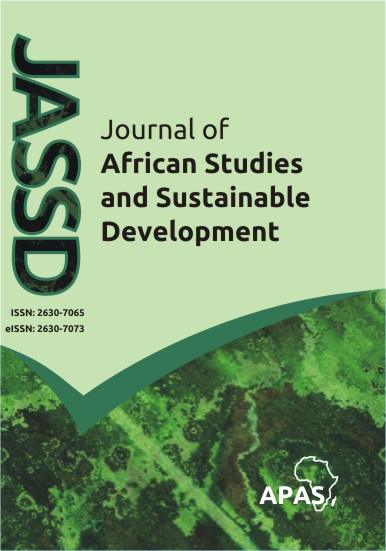 Journal of African Studies and Sustainable Development (JASSD) (Vol. 6 No. 2, 2023)
HUMANISING THE SCIENCES THROUGH THE SOCRATIC METHOD
Journal of African Studies and Sustainable Development (JASSD) (Vol. 6 No. 2, 2023)
HUMANISING THE SCIENCES THROUGH THE SOCRATIC METHOD
ABSTRACT
There is a growing attitude that science alone is what humans need to preserve -nurture, progress, succeed, and sustain - their existence. This brand of thinking is expressed in two major ways. First, it sees science as all-important, supreme and self-sustaining. That is, science is all that everything else needs and all that science needs. Second, it views all knowledge from the humanities as quasi-knowledge, suspect, incapable of advancing humans’ practical and material concerns and, consequently, of limited or no real relevance. The purpose of this study is to examine this attitude. To do this, the study employs an analytical, comparative and interdisciplinary approach. Philosophical analysis is employed to interrogate the methods through which science derives its knowledge to ascertain if the claim that something is scientifically proven is based on a universal certification. Its' comparative stance involves comparing the sciences and the humanities to find out if they differ so radically from each other. The interdisciplinary texture of the work derives from its ability to cut across the sciences and the humanities. The study finds that there is a need to protect ideas and disciplines which help to guarantee a balanced understanding of our world. This is where Socrates comes in as an embodiment of the two. The study concludes that Socrates' position reveals that there is a deep affinity between the sciences and the humanities. There is something more fundamental than material things which science deals with and it is this deeper structure that provides the anchor for science.

